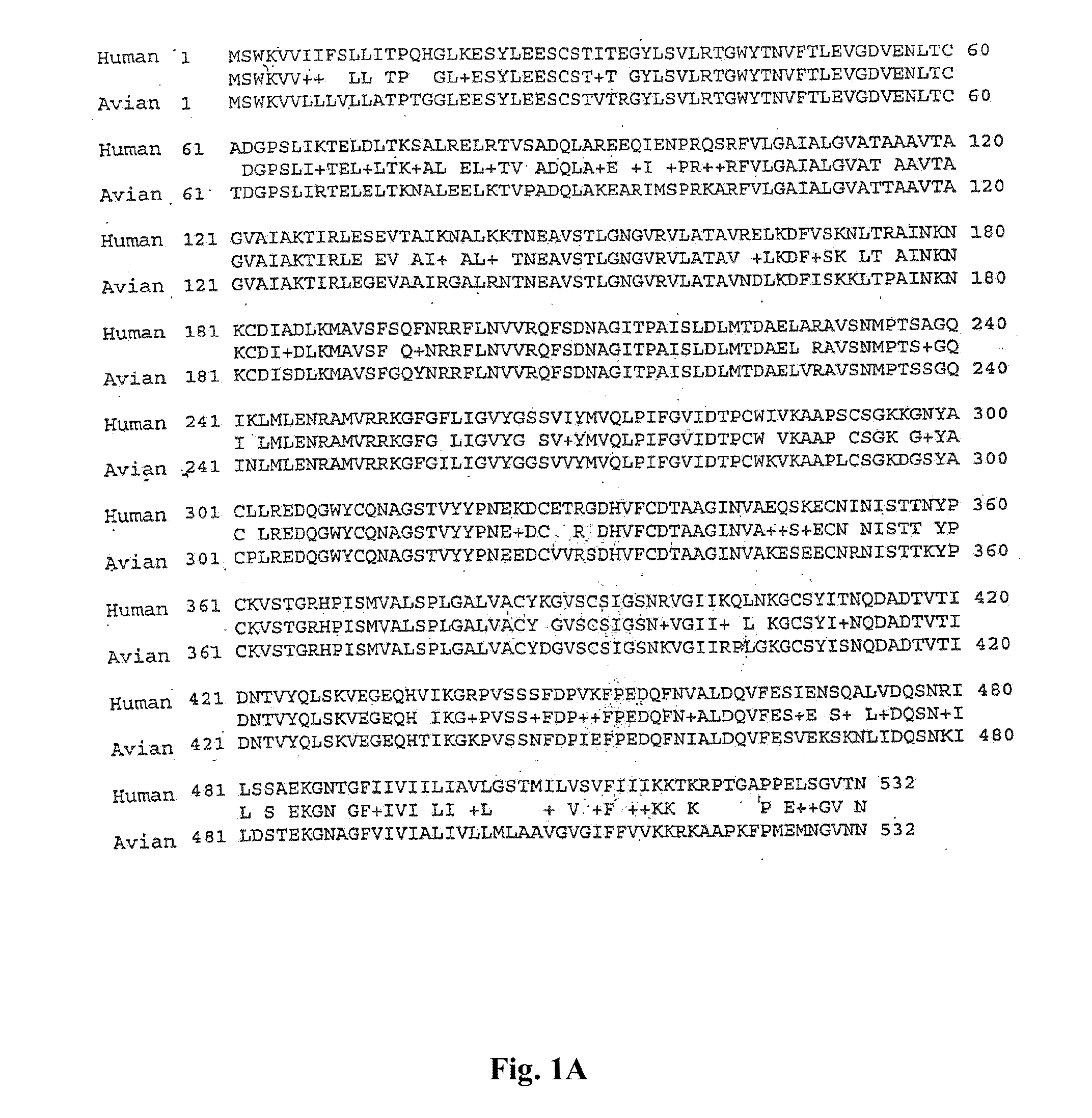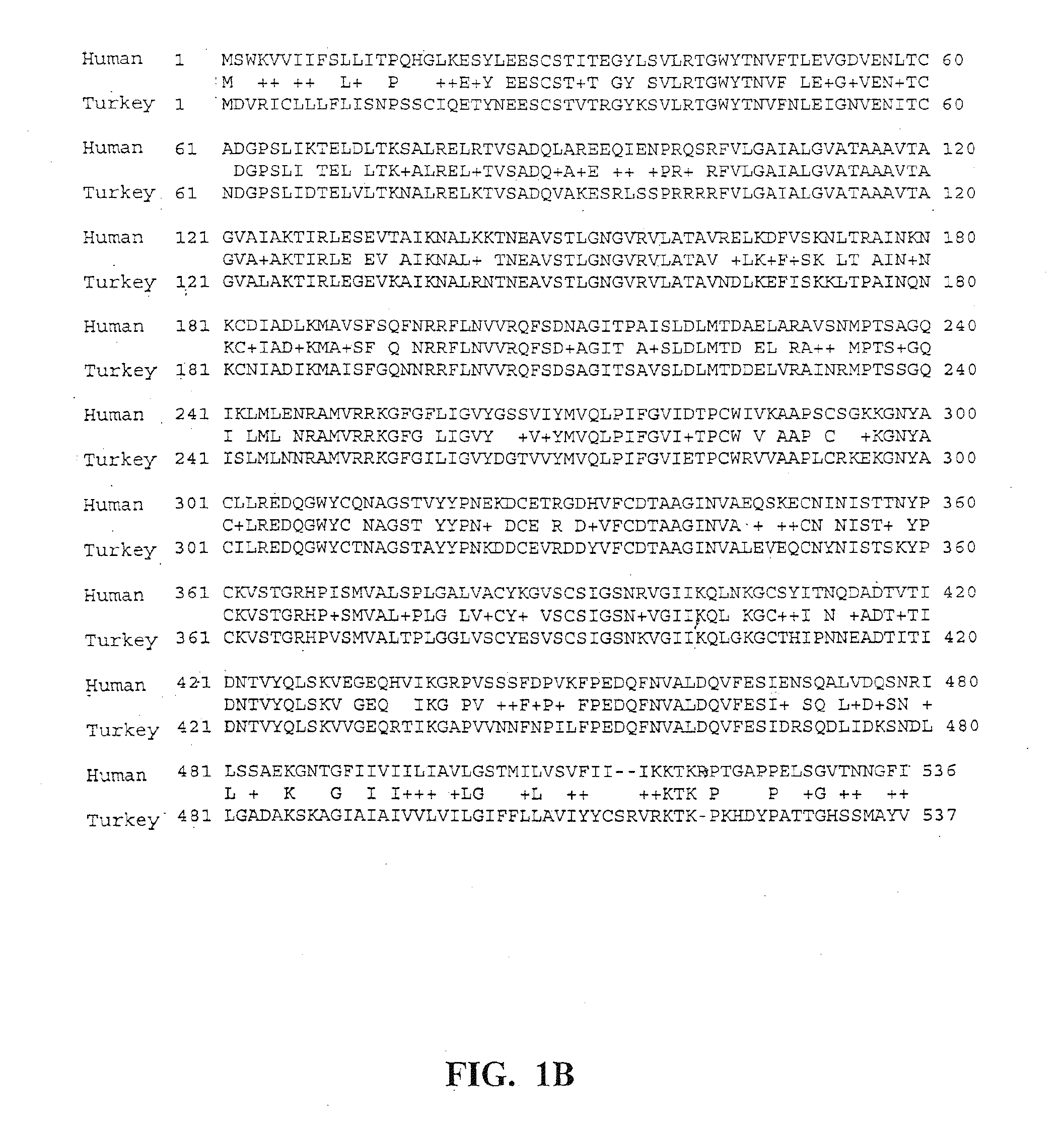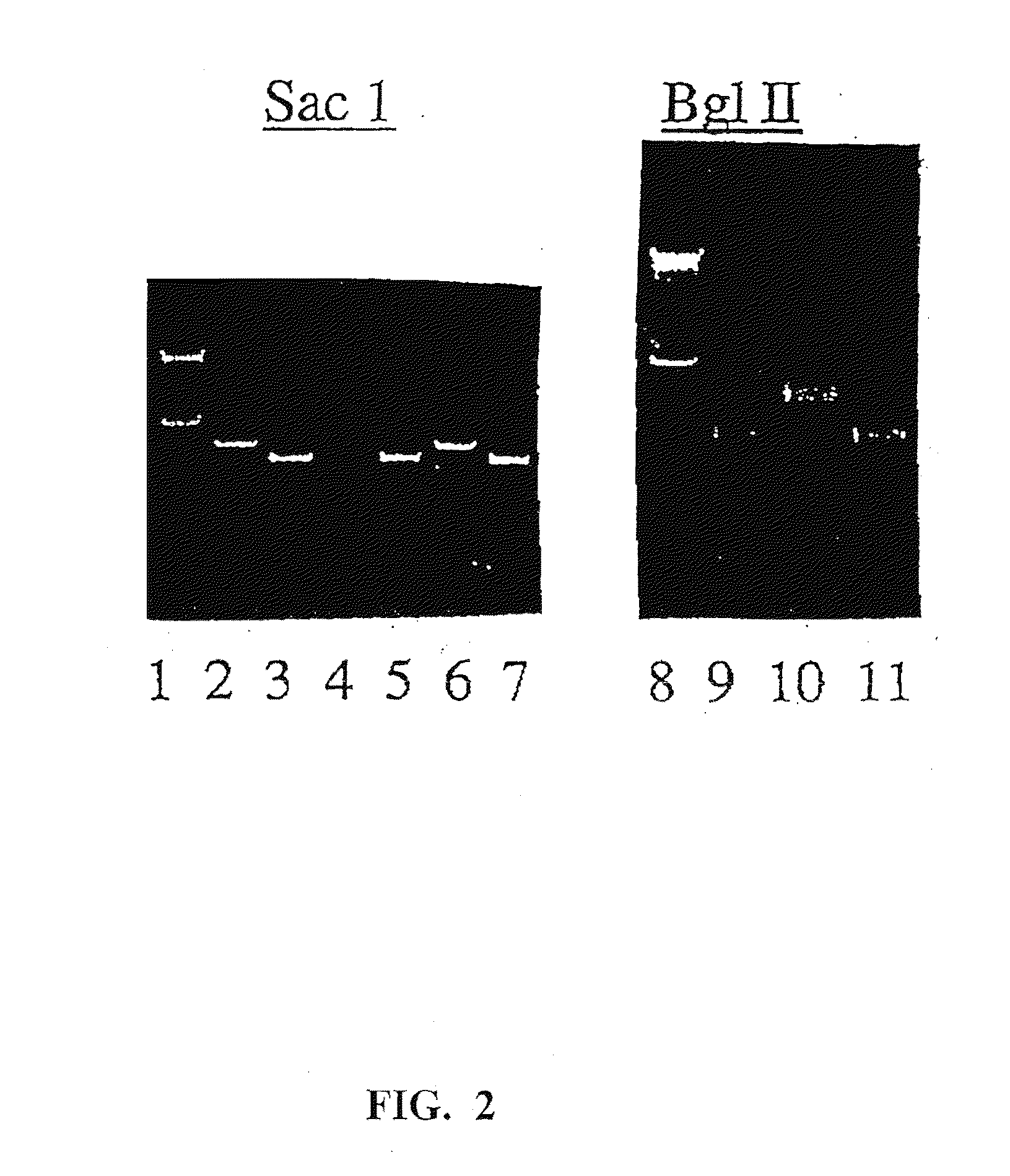Recombinant parainfluenza virus expression systems and vaccines comprising heterologous antigens derived from metapneumovirus
a technology of metapneumovirus and parainfluenza virus, which is applied in the field of recombinant parainfluenza virus expression systems and vaccines comprising heterologous antigens derived from metapneumovirus, can solve the problems of complex replication of all negative-strand rna viruses, including piv, and ineffective antiviral therapy
- Summary
- Abstract
- Description
- Claims
- Application Information
AI Technical Summary
Benefits of technology
Problems solved by technology
Method used
Image
Examples
example 1
6. EXAMPLE 1
Construction and Cloning of Chimeric Bovine Parainfluenza 3 / Human Parainfluenza 3 cDNA
[0331]In order to substitute the F and HN genes of bPIV3 with those of hPIV3, additional restriction enzyme sites were introduced into the infectious bPIV3 cDNA. Using site-directed mutagenesis, a unique Nhe I site was introduced at nucleotide position 5041 and a Sal I site was introduced at nt 8529 of the bPIV3 cDNA. The modified full-length bPIV3 cDNA was treated with Nhe I and Sal I restriction enzymes and a ˜14 kb DNA fragment encompassing all of the viral bPIV3 sequences except the F and HN genes, was isolated by gel purification.
[0332]To obtain the hPIV3 F and HN gene sequences, a 10 cm dish of confluent Vero cells was infected with a strain of hPIV3 (hPIV3 / Tex / 12084 / 1983). After 3 days of incubation at 37° C., the cells were harvested and total RNA was isolated using RNA STAT-LS 50 (Tel-Test Inc.). Viral cDNA was generated by reverse transcription using a hPIV3 specific oligo ann...
example 2
7. EXAMPLE 2
Construction and Cloning of Chimeric Bovine Parainfluenza 3 / Human Parainfluenza 3 Vectored Respiratory Syncytial Virus F OR G cDNAs
[0334]In order to determine the effects of RSV antigen insertions in position 1 or 2 of the b / h PIV3 genome on virus replication, respiratory syncytial virus (RSV) F and G genes were cloned into different positions of the chimeric bovine parainfluenza 3 / human parainfluenza 3 vector (b / h PIV3 vector). See FIG. 4.
[0335]In order to insert foreign genes into the bovine / human (b / h) PIV3 cDNA, AvrII restriction enzyme sites were introduced in the b / h PIV3 cDNA plasmid (Haller et al., 2000; 2001, this is the same construct as in Example 6) by site-directed mutagenesis using the QuickChange kit (Stratagene). One AvrII site was introduced at nucleotide (nt) 104 in the b / h PIV3 genome altering four nucleotides using the following oligo 5′GAA ATC CTA AGA CCC TAG GCA TGT TGA GTC3′ and its complement. This restriction enzyme site was used to insert the RS...
example 3
8. EXAMPLE 3
Bovine Parainfluenza 3 / Human Parainfluenza 3 Vectored Respiratory Syncytial Virus F or G Displayed a Positional Effect with Regards to mRNA production and protein expression as Well as Virus Replication In Vitro
[0340]Three experiments were performed to confirm the effective expression of the RSV F or G gene in the constructs of Example 2, and to determine positional effects of gene insertions in the PIV3 genome.
[0341]First, in order to demonstrate RSV protein expression by the chimeric viruses, a Western blot of chimeric virus-infected cell lysates was carried out and probed with RSV-specific antisera. See FIG. 5A. Western blots were performed as follows: Chimeric viruses were used to infect (70-80%) subconfluent Vero cells at a MOI of 0.1 or 1.0. Forty-eight hours post infection the media overlay was removed and infected monolayers were washed once with 1 ml of PBS. The cells were subsequently lysed in 400—1 of Laemmli buffer (Bio-Rad) containing 0.05%_-Mercaptoethanol ...
PUM
| Property | Measurement | Unit |
|---|---|---|
| length | aaaaa | aaaaa |
| diameter | aaaaa | aaaaa |
| length | aaaaa | aaaaa |
Abstract
Description
Claims
Application Information
 Login to View More
Login to View More - R&D
- Intellectual Property
- Life Sciences
- Materials
- Tech Scout
- Unparalleled Data Quality
- Higher Quality Content
- 60% Fewer Hallucinations
Browse by: Latest US Patents, China's latest patents, Technical Efficacy Thesaurus, Application Domain, Technology Topic, Popular Technical Reports.
© 2025 PatSnap. All rights reserved.Legal|Privacy policy|Modern Slavery Act Transparency Statement|Sitemap|About US| Contact US: help@patsnap.com



